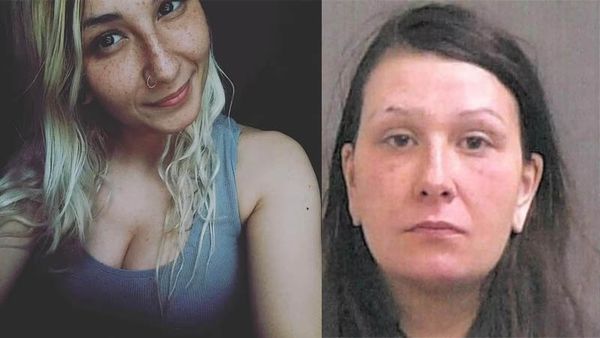
Priti Patel has launched a crackdown on ‘golden visas’ (Jeff Overs/PA)
(Picture: PA Media)We’ve all been there: someone has made us a long-awaited promise and then failed to deliver. Perhaps an errant romantic partner, an unreliable builder or a company that insists your parcel will arrive before midday. You end up feeling led on; disappointed; as though your concerns aren’t being listened to.
Is Priti Patel becoming stringer-along in chief? I ask because she has just rejected attempts to make misogyny a hate crime, months after announcing a “radical programme of change” to tackle violence against women and girls (VAWG) in Britain.
The Home Secretary has kiboshed an amendment to her flagship Policing, Crime, Sentencing and Courts Bill which was passed in the House of Lords in January, ahead of it returning to the House of Commons next week.
Her reasons? It would be “tokenistic” and “more harmful than helpful” for victims of serious offences such as rape or domestic abuse, as prosecutors would apparently need to prove that a “hate crime” had occurred, too.
“Is refusing to make misogyny a hate crime, a misogynistic hate crime?” some on social media are asking. It’s certainly a giant step backwards for a government that pledged to take the harassment of women seriously in the wake of Sarah Everard’s murder, almost exactly a year ago.
Shall we talk about tokenistic? In November, VAWG was made part of the national policing requirement and elevated to the same status as terrorism. Since then, nothing has been said or done to reinforce that. Just silence and depressing statistics. Home Office data from January revealed a steep drop in prosecution and conviction rates for rape, with just 1.3 per cent of cases now reaching prosecution. The average delay between the offence itself and the completion of any resulting criminal case has now reached 1,000 days for the first time.
It’s almost as if Patel is worried that by making misogyny a hate crime, an already failing system might be overwhelmed with fresh reports… which would then have to be dealt with, in London at least, by a police force itself rife with misogyny. Last week, two Metropolitan police officers and a former officer were charged with sharing grossly offensive WhatsApp messages with Sarah Everard’s murderer, Wayne Couzens – the latest such revelation about a force that Patel seems to think should remain at the heart of the solution. A force in which women’s trust is at an all-time low.
While throwing out the baby this week, Patel tried to keep a little of the bathwater, saying that a new offence of public sexual harassment could be introduced in the future, but won’t be added to the current Bill.
So, she is pushing through a historic crime-fighting piece of legislation but won’t include something that could start helping women and girls in Britain now? This is the same person who said October: “There is something so corrosive in society if people think that it’s OK to harass women verbally, physically, and in an abusive way on the street, and all that kind of stuff. I want women to have the confidence to call it out. I don’t see all of this as low level.”
I can hear the sound of a can being kicked down the road. The simple fact is that our laws still don’t recognise how misogyny drives violence against women and by failing to connect the dots we can’t properly tackle these crimes. By not including in her Bill any legislation that might put a rocket up this long overdue process, Patel is squandering a once-in-a-generation chance to help the very people she has spent the last year pledging to stand up for.
We can’t wait any longer for our safety to be a priority. For the sort of laws that mean Couzens might never have had the opportunity to kill Sarah, because his past indecent exposure would have been treated seriously.
If the action of making misogyny a hate crime is “tokenistic”, I think at this point most of us would take it.







